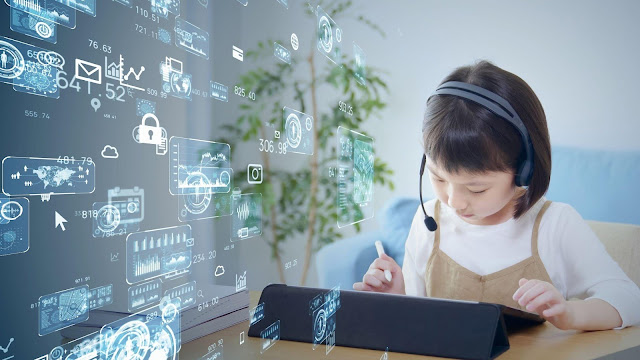Embracing the Future: The Role of Technology Use in Education
The Revolution of Learning: Technology Use in Education
Technology usage in education has revolutionized the way we approach learning. From interactive whiteboards to online learning platforms, technology has transformed traditional classrooms into dynamic learning environments. This shift not only makes education more accessible but also enhances the learning experience by offering diverse and innovative methods.
Technology Use in Education: Bridging the Gap
One of the key roles of technology usage in education is bridging the educational divide. It provides equal learning opportunities, irrespective of geographical or socio-economic barriers. Through technology, resources and information are just a click away, making education more inclusive and far-reaching.
There are services like do my online online class which are reframing the academic universe for the students of this generation.
Interactive Learning: A Byproduct of technology usage in education
Interactive learning, facilitated by technology usage in education, engages students more actively. Tools like virtual labs, simulations, and educational games make learning more engaging and effective, fostering a deeper understanding of complex concepts.
Technology Use in Education and Personalized Learning
Personalization is another advantage of technology use in education. Adaptive learning software and online resources cater to individual learning styles and paces, making education a more personalized experience for every student.
The Role of Technology in Collaborative Learning
Collaborative learning is greatly enhanced by technology usage in education. Platforms that facilitate group projects, discussions, and peer-to-peer learning foster a sense of community and teamwork among students, even in remote learning scenarios.
Technology usage in education for Skill Development
In today's digital world, technology usage in education is crucial for skill development. It equips students with digital literacy, critical thinking, and problem-solving skills, which are essential for success in the modern workforce.
Challenges and Responsible technology usage in education
While technology usage in education offers numerous benefits, it also poses challenges such as digital distraction and the digital divide. Responsible use of technology in education involves addressing these challenges through balanced and mindful implementation.
Preparing for the Future: technology usage in education
The future of work is heavily intertwined with technology, making technology usage in education vital for preparing students for future career paths. It ensures that learners are equipped with the necessary skills and knowledge to thrive in a technologically advanced world.
The Evolution of Assessment Through technology usage in education
A significant aspect of technology usage in education is its impact on assessment methods. Traditional exams are increasingly being complemented or replaced by digital assessments, which offer a more diverse range of evaluation techniques. Technology use in education allows for real-time feedback, automated grading, and more personalized analysis of student performance, leading to more accurate and comprehensive assessments.
Enhancing Teacher Training with Technology Use in Education
For educators, technology use in education is not just about enhancing student learning; it's also about improving their teaching methodologies. Professional development programs increasingly incorporate technology training, enabling teachers to integrate digital tools effectively into their curriculum. This aspect of technology usage in education ensures that educators are well-equipped to guide students in a technology-rich learning environment.
Fostering Global Connectivity through technology usage in education
Technology use in education has demolished geographical barriers, enabling global connectivity. Students can now engage in international projects, collaborate with peers from different parts of the world, and gain exposure to diverse cultures and ideas. This global perspective, fostered by technology usage in education, is crucial in preparing students for a globalized world.
Environmental Impact and Sustainability in technology usage in education
An often-overlooked aspect of technology usage in education is its environmental impact. Digital learning can reduce the reliance on paper, contributing to sustainability efforts. Moreover, technology use in education promotes the understanding and implementation of green technologies, instilling environmental consciousness in students.
Accessibility and Inclusivity in Technology Use in Education
Technology usage in education plays a pivotal role in making learning accessible to all, including those with disabilities. Assistive technologies, such as screen readers and speech-to-text software, ensure that education is inclusive and accessible to students with diverse needs. This inclusive approach is a cornerstone of ethical technology use in education.
The Future of Experiential Learning with technology usage in education
Experiential learning is being redefined by technology use in education. Virtual reality (VR) and augmented reality (AR) provide immersive learning experiences that were previously unimaginable. These technologies allow students to explore concepts in a highly interactive and engaging manner, further enhancing the effectiveness of technology usage in education.
The Integration of Artificial Intelligence in Technology Use in Education
Artificial Intelligence (AI) is rapidly becoming a key component of technology usage in education. AI can personalize learning experiences, predict student performance, and provide intelligent tutoring systems. The integration of AI in education holds the promise of a highly adaptive and responsive learning environment.
Preparing for Digital Citizenship and Responsibility
With the increased technology usage in education, it's essential to prepare students for responsible digital citizenship. Understanding the ethical use of technology, online safety, and digital rights and responsibilities is crucial in a world where technology is ubiquitous. This preparation is a vital part of technology usage in education, equipping students to navigate the digital world responsibly.
Final Verdict
The impact of technology use in education is undeniable. It has opened doors to innovative teaching methods, personalized learning experiences, and new ways of student engagement. As we continue to navigate the digital era, the role of technology in education will only grow more significant, shaping not just how we learn, but also how we think, collaborate, and solve problems. Embracing this change is essential for students and educators to stay ahead in the ever-evolving academic landscape.




Comments
Post a Comment